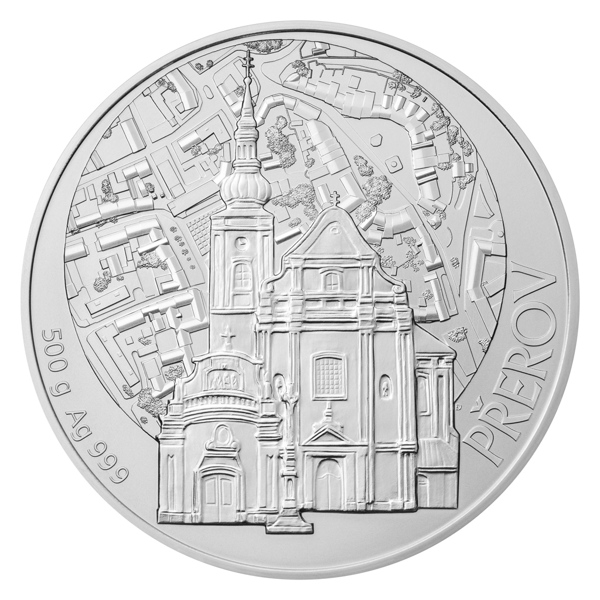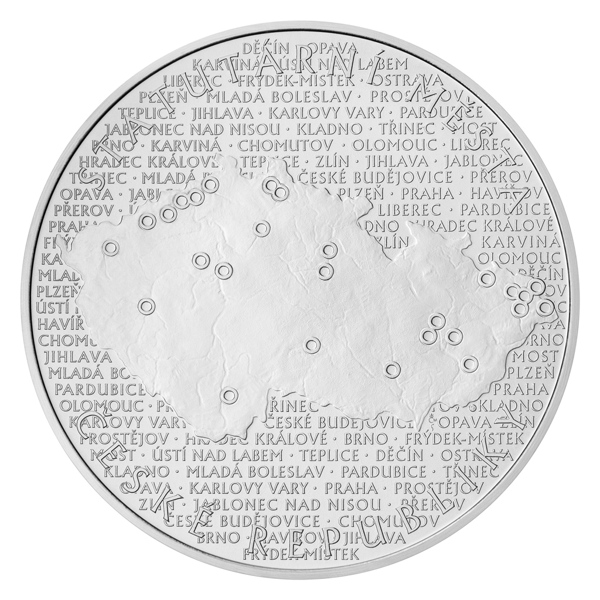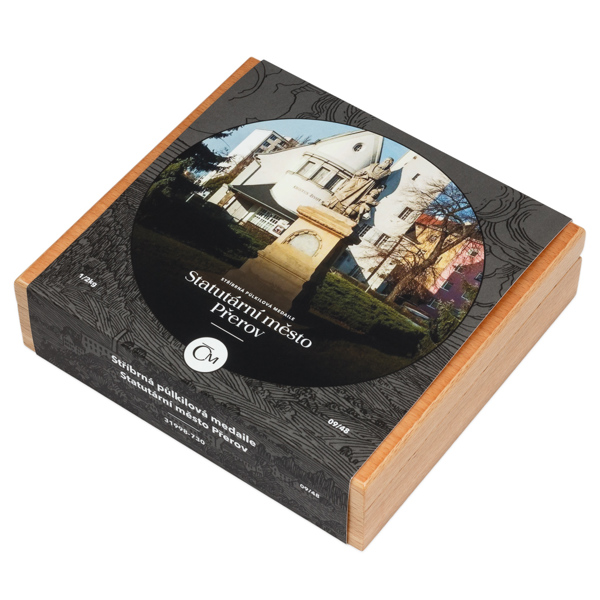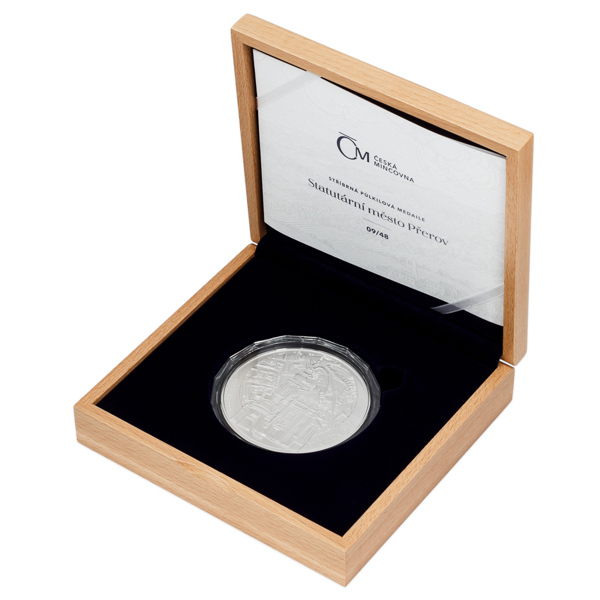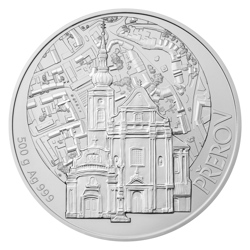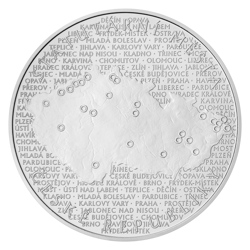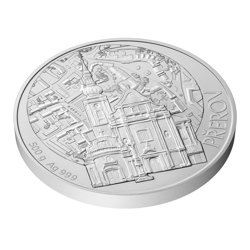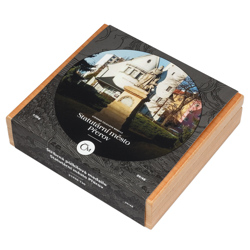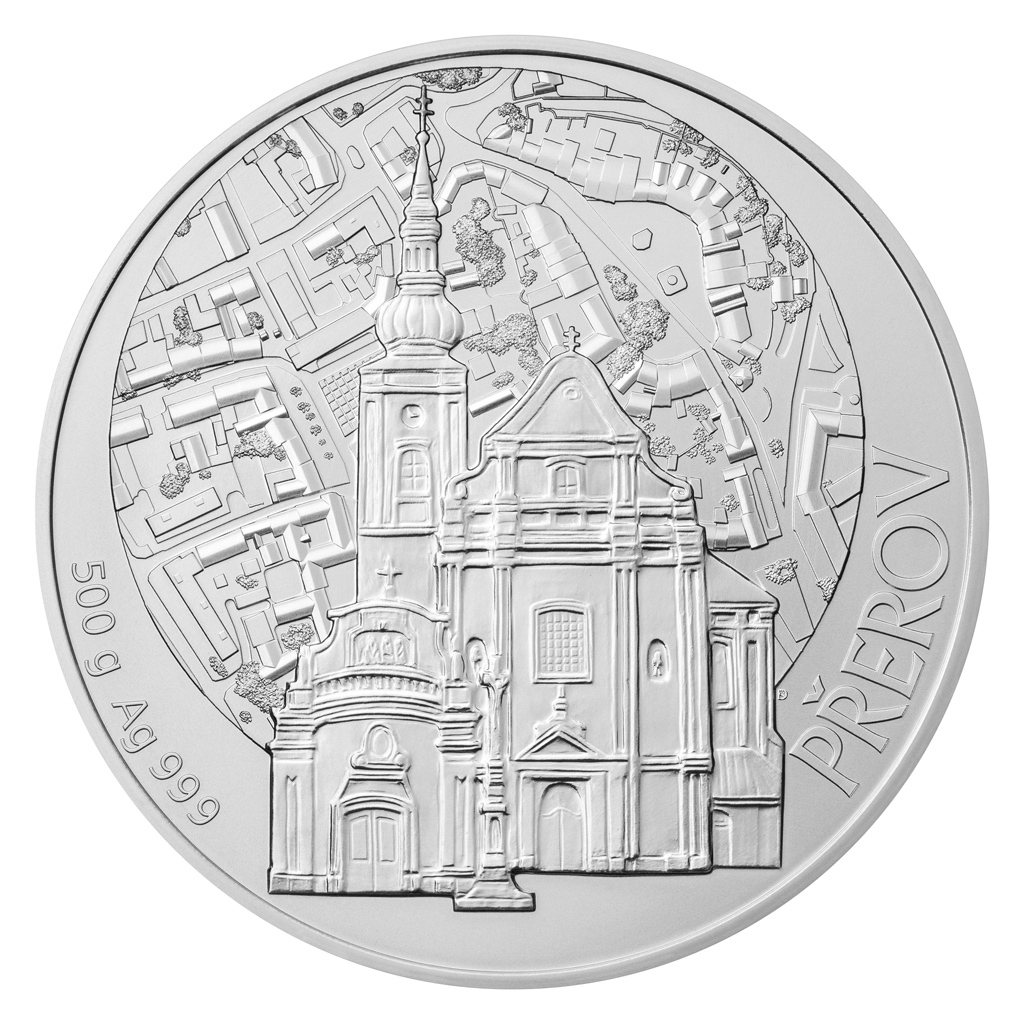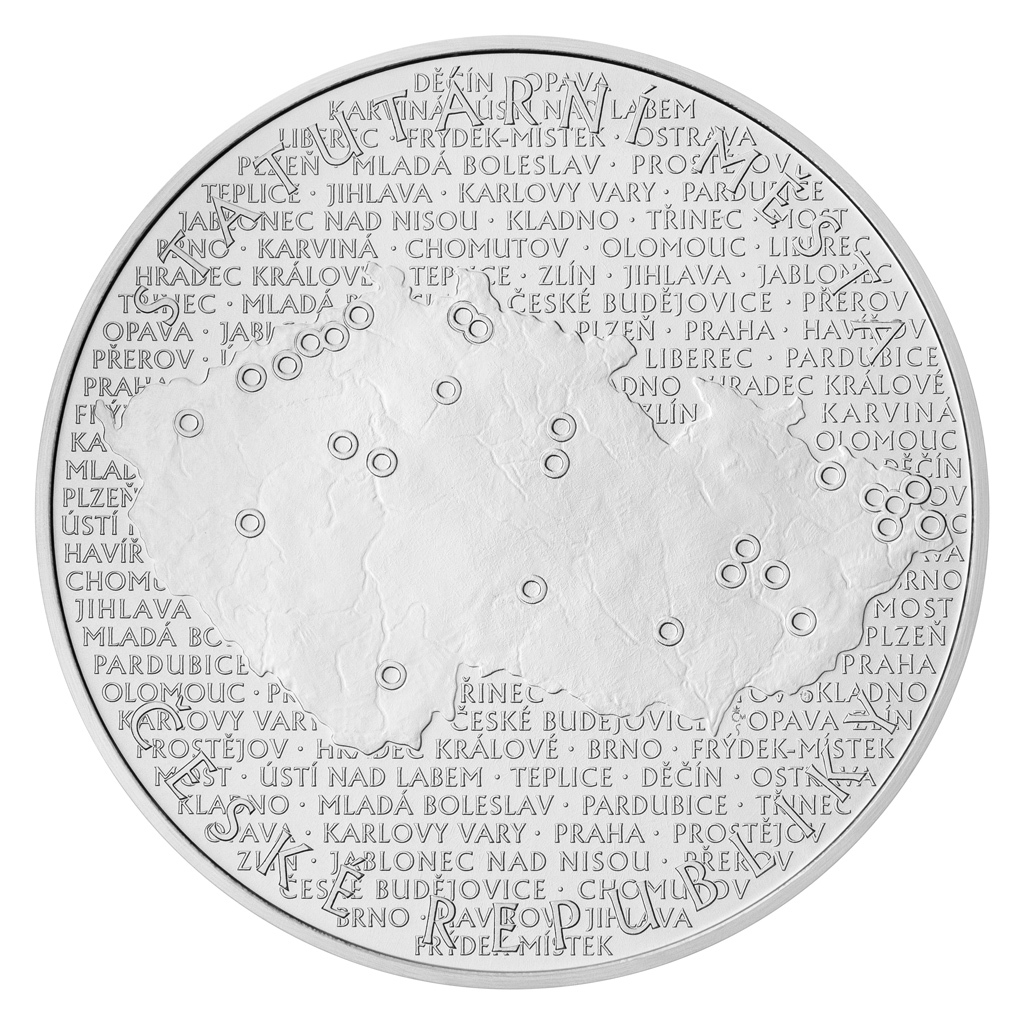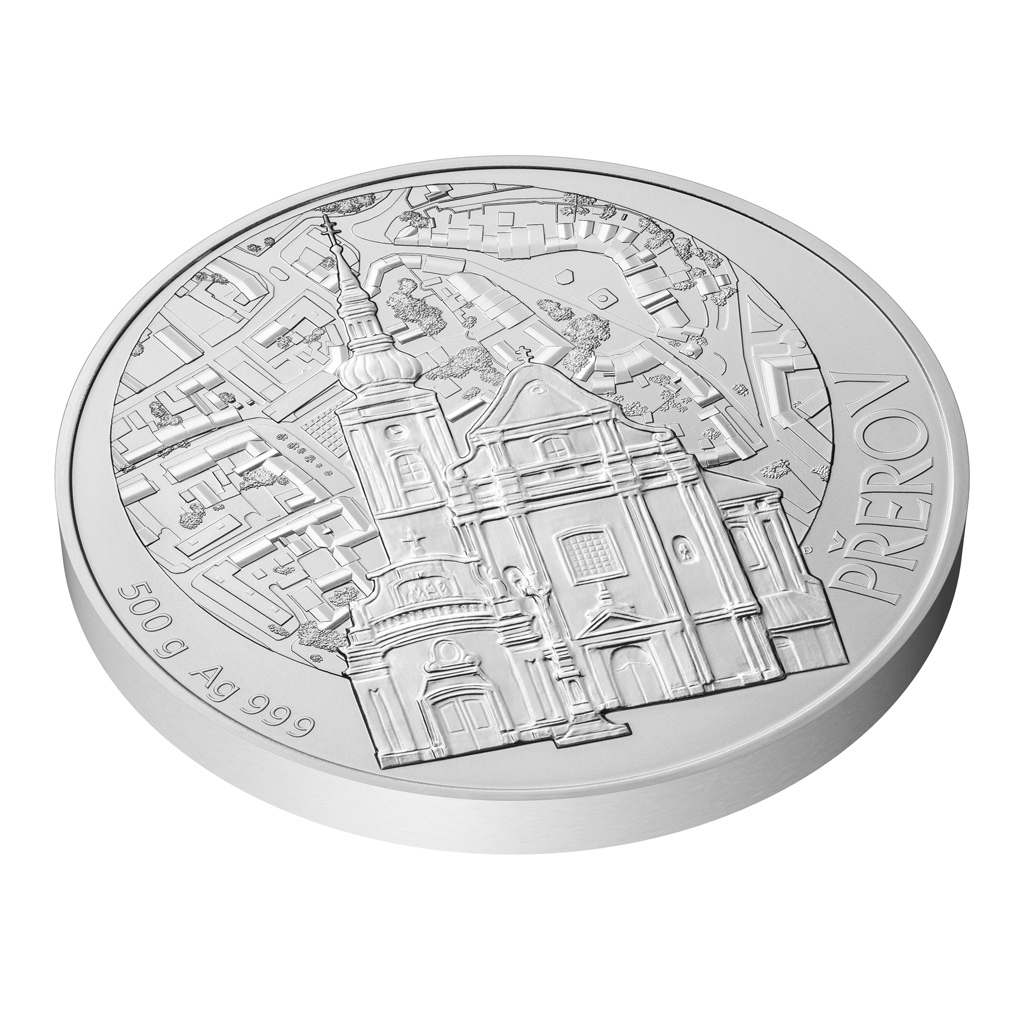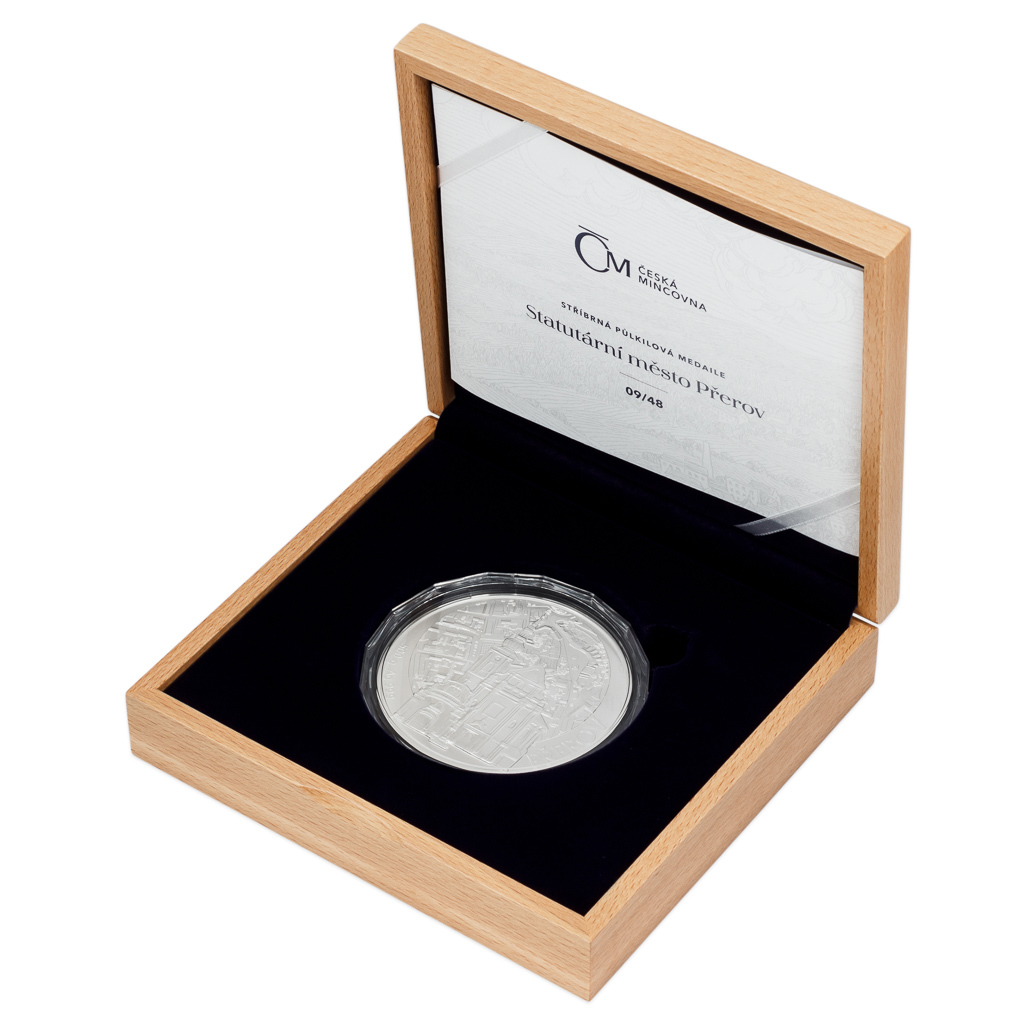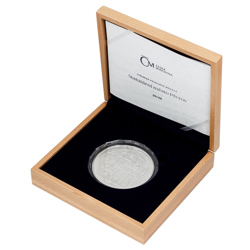Silver half-a-kilo medal Statutory town of Přerov stand
Personal pickup at the store
Statutory towns
The nineteenth statutory town to appear on the Czech Mint's medals minted from one half kilo of pure silver is Přerov.
The history of Přerov dates back to the very beginning of human history. Evidence of the settlement of the area, which lies in the heart of Moravia on the banks of the Bečva River, are significant archaeological findings from the time of the mammoth hunters. In later times, trade routes passed through the area, and in the times of Great Moravia a fortress grew up here. The first written mention of Přerov as a town dates back to 1141. Its development in the following centuries was closely linked to the noble Žerotín family, headed by Charles the Elder of Žerotín, and to the activities of the Unity of the Brethren. The key figure of this evangelical church was Jan Blahoslav, a native of Přerov, a writer, scholar and humanist, whose culminating work was the translation of the New Testament into Czech. Blahoslav's successor, Jan Amos Komenský, the Teacher of Nations himself, also worked in Přerov, where he studied at the Brethren School and later taught. The rapid development of the town occurred after the construction of the main railway line from Vienna to Olomouc and then in the era of socialism, when the food processing, chemical and engineering industries boomed. Přerov has been a statutory town, which is an important transport crossroads and a key economic centre of the Olomouc Region since 2006 .
The obverse side of the medal, which is the work of the medal maker Štěpánka Doležalová, is dominated by the St. Lawrence Church in Přerov - originally Gothic, later rebuilt in Baroque style. A detailed aerial view of the town centre completes the composition of the obverse side. The reverse side of the medal bears a map of the Czech Republic with the statutory towns marked.
In total, only 48 half-kilogram medals will be produced - each specimen is hand-numbered on the edge and stored in a luxurious wooden case.
 čeština
čeština
 slovenčina
slovenčina
 english
english
